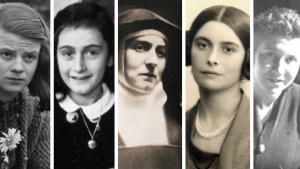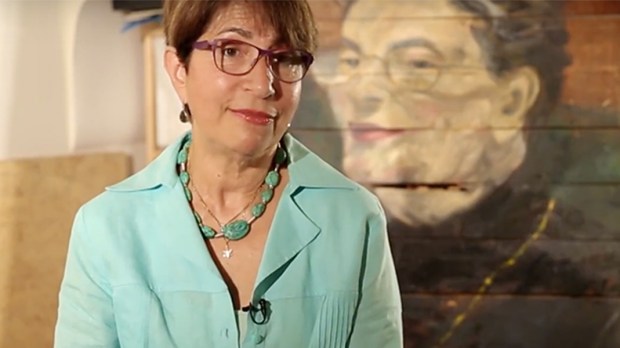The mother-in-law/daughter-in-law relationship isn’t something that’s usually celebrated, or even highlighted (at least in a positive light) in modern culture. But Lotte Weiss, a Holocaust survivor now living in Sydney, Australia, and her 67-year-old daughter-in-law, Thea, originally from New York, are two exceptions to that common old trope. Together, the two women are each helping to keep Lotte’s life story of survival and miracles alive through art.
Thea, an artist who works in many different media, met Lotte’s son, Johnny, while he was vacationing in London, the same time she was there attending art school, according to a story about the Weiss women in the Sydney Morning Herald. Johnny and Thea fell in love, and she followed him back to New Zealand, where Lotte and her husband first settled after leaving Europe.
The first thing Lotte did was to grab my wrist and start telling me the most incredible stories, things I could never even imagine would have happened. Lotte’s entire family – her parents, three sisters and two brothers – died in Auschwitz during the war. It was a miracle she survived. Lotte showed me the prisoner number tattooed on her arm. I’d never seen a tattoo like that, even though many of my mother’s relatives were Holocaust survivors. It was confronting, because in my family the Holocaust was something you didn’t talk about.
Upon meeting, the two realized they were very different — Lotte loved to bake and Thea wouldn’t touch white flour — but the connection was clear, and a solid relationship of respect and love followed. Thea remarked how it was always so amazing to her that someone who went through such horrors in life, being forcibly deported from her home in Slovakia, along with her two sisters in 1942 for Auschwitz, and eventually losing them and everyone, could be so positive about life. It wasn’t until after Lotte wrote My Two Lives, a 2003 book about her experience, that Thea was visually moved to bring her mother-in-law’s inspiring history to life in artwork. The result, an exhibition of the same name, many of it portraiture of Lotte at different stages of life, first debuted soon after for Lotte’s 85th birthday in Australia, and has since traveled to the US.
“Her art has opened up a whole new avenue for people to see what happened during the Holocaust,” Lotte says in the Herald. “And I’m very grateful to her, because she’s made Johnny very happy. I could never have gotten a better daughter-in-law than Thea.”
You can watch Lotte tell her story below:

Read more:
5 Women from the Holocaust who give us hope (Photo gallery)

